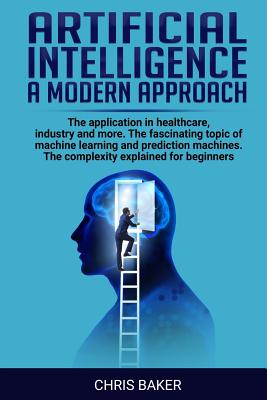商品描述
The idea that human history is approaching a "singularity" -- that ordinary humans will someday be overtaken by artificially intelligent machines or cognitively enhanced biological intelligence, or both -- has moved from the realm of science fiction to serious debate. Some singularity theorists predict that if the field of artificial intelligence (AI) continues to develop at its current dizzying rate, the singularity could come about in the middle of the present century. Murray Shanahan offers an introduction to the idea of the singularity and considers the ramifications of such a potentially seismic event.
Shanahan's aim is not to make predictions but rather to investigate a range of scenarios. Whether we believe that singularity is near or far, likely or impossible, apocalypse or utopia, the very idea raises crucial philosophical and pragmatic questions, forcing us to think seriously about what we want as a species.
Shanahan describes technological advances in AI, both biologically inspired and engineered from scratch. Once human-level AI -- theoretically possible, but difficult to accomplish -- has been achieved, he explains, the transition to superintelligent AI could be very rapid. Shanahan considers what the existence of superintelligent machines could mean for such matters as personhood, responsibility, rights, and identity. Some superhuman AI agents might be created to benefit humankind; some might go rogue. (Is Siri the template, or HAL?) The singularity presents both an existential threat to humanity and an existential opportunity for humanity to transcend its limitations. Shanahan makes it clear that we need to imagine both possibilities if we want to bring about the better outcome.
商品描述(中文翻譯)
人類歷史接近「奇點」的想法——即普通人類有一天將被人工智慧機器或認知增強的生物智慧,或兩者皆超越——已經從科幻小說的領域進入了嚴肅的討論。一些奇點理論家預測,如果人工智慧(AI)領域繼續以目前令人眩暈的速度發展,奇點可能會在本世紀中葉出現。穆雷·香農(Murray Shanahan)對奇點的概念進行了介紹,並考慮了這種潛在的重大事件的影響。
香農的目標不是做出預測,而是調查一系列情境。無論我們相信奇點是近在咫尺還是遙不可及,是可能還是不可能,是末日還是烏托邦,這一想法都引發了關鍵的哲學和實用問題,迫使我們認真思考作為一個物種我們想要什麼。
香農描述了人工智慧的技術進步,包括生物啟發的和從零開始工程設計的人工智慧。他解釋說,一旦達到人類水平的人工智慧——理論上是可能的,但實現起來困難——向超智能人工智慧的過渡可能會非常迅速。香農考慮了超智能機器的存在對於人格、責任、權利和身份等問題可能意味著什麼。一些超人類的人工智慧代理可能會被創造出來以造福人類;而有些則可能會叛變。(Siri 是模板,還是 HAL?)奇點對人類既構成了生存威脅,也為人類超越自身的局限性提供了生存機會。香農明確表示,如果我們想要實現更好的結果,我們需要想像這兩種可能性。













